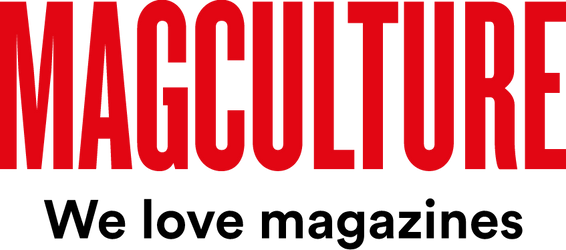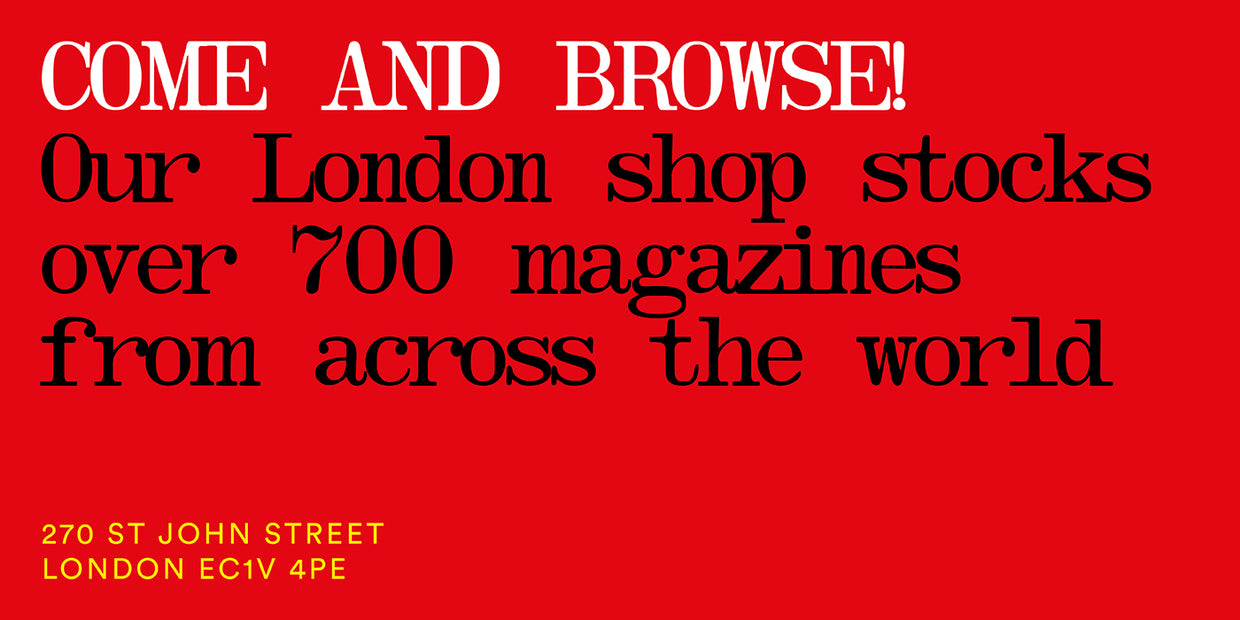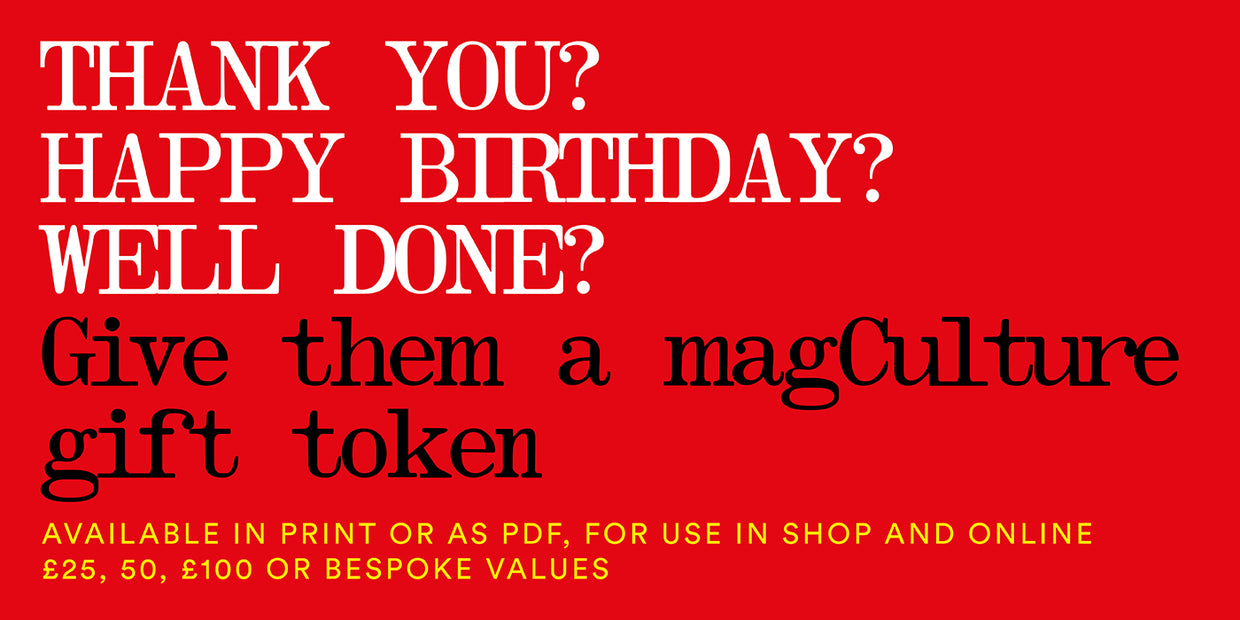
At Work With: Erin Spens, Boat Magazine

American writer/editor Erin Spens co-founded Boat Magazine with her husband Davey in 2011, since when their nomadic magazine has visited Sarajevo, Detroit, London, Athens and Kyoto. They’ve just completed their sixth issue in Reykajvik, and here she looks at the week ahead as that issue goes to print.
Where are you today?
I’m in the Brixton studio where our designer, Daniel Cooper, works. It’s a five minute walk to Brixton Village so lots of great lunch options!
What can you see from the window?
More artists’ studios and Brixton Academy is across the street.
How many emails are waiting in your inbox?
I haven’t looked, yet! I’m keeping my inbox out of sight until we send the Reykjavík issue of Boat off to print (today!). We’re in tiny-detail-freak-out-land so I’m trying to stay focused!

What’s your favourite magazine this morning?
I think the last issue of Huck, the documentary photography special, really nailed it. I love Elizabeth Dalziel’s work, which they featured. Shane McCauley’s photos from underground music scenes in New York are amazing, and I love coming of age stories so Bryan Derballa’s ‘Last Days of Youth’ essay was one of my favorites.

I’ve also just received a few of the back issues of Colors and am devouring them. The News issue and the War issue are incredible. I think the work they’re doing is really important. Actually, I wish every American could read these two issues! They’re hard to digest, but that’s how it should be in the state we’re in!

The concept behind Boat always catches peoples imaginations. Did you expect it to strike such a nerve?
No, I had no idea it would take on the life it has. Each issue of Boat is focused on a different city – we try to shed new light on places that have either been a bit forgotten or have become known for one particular thing. We take a small team to the city that work on their own stories and also alongside locals who tell the stories of their city that they want the world to know. This inside/outside approach works really well in keeping the coverage balanced.
It’s really incredible how a place can get a reputation that is either inaccurate or very reductive. We’ve found that the reputation of a city has a big impact on the people living there, particularly the younger generations and particularly if it’s negative. So when the microphones and cameras are handed over to the locals, you get a better idea of what it’s really like and they finally get to tell their own story, not just the one that has a catchy headline or boosts TV ratings. I don’t know why this continually amazes me, but I’m always surprised at how different places are when you spend a good amount of time there simply listening.

The new Reykajvik issue of Boat. All following images are from the issue.
What, if any, criteria do you use to select you host cities (and is there a city you would never do)?
This is oddly a really hard question to answer; the cities we’ve covered so far have sort of presented themselves as really obvious choices. We saw an entire supplement in the Daily Mail about Detroit that wrote the whole place off as a ghost town. I grew up in the Midwest and have a soft spot for cities like Detroit, some friends of mine have moved there and love it, so it made me really mad that a newspaper was able to print such crap! So we stomped our feet and went to Detroit!
 Photograph by Christo Geoghegan
Photograph by Christo Geoghegan
We were also approached by the London International Festival of Theatre to create a special edition of Boat in Derry-Londonderry earlier this year which was really fun. It was chosen as the City of Culture 2013 and we went and created an entire newspaper over the course of a week telling stories with the locals of what life is like there. We really fell for the place and the people! It was nuts, though, doing it in a week. I think we dried up the hotel’s coffee supplies!
I don’t think there’s a city we would rule out forever, but there are lots of places we’d love to cover that just wouldn't be safe right now. There are also a few cities we’d love to do where I reckon we’d get ourselves into trouble with censorship!

Photograph by Liz & Max Haarala Hamilton
The amount of work that goes into each issue must dwarf any financial return. Can you describe what you and Davey get out of the project in other ways?
That’s true! We run a design studio, Boat Studio, which is where the name of the magazine comes from. The studio subsidizes the magazine right now with a goal that it will eventually stand on its own – time will tell! But the magazine’s helped to raise the profile of the studio where we do work for other brands and publications. It’s worked okay so far. I’m really passionate about pure journalism, though, and how it can continue to exist today. Things seem to be moving towards ‘brand-sponsored content’ (which is just advertising disguised as journalism) or quick, cheap, shallow coverage because of all the changes in how we consume media and news. We started an online music magazine called Middle 8 Magazine this year, for example. It’s been a really interesting study and we’re hoping to keep exploring there.
What was the last thing your art director said to you?
“What’s the deal with the fonts?”
What are you most looking forward to this week?
The opening of an art exhibition on Thursday 14th – it’s the first show my friend Nathan has curated and he’s brilliant so it’ll be brilliant.
What are you least looking forward to this week?
The temptation to go back through the PDF of the Reykjavík issue after it’s gone to the printers. It’s torture.
What will you be doing after this chat?
Proofreading until my eyes bleed.
www.boat-mag.com
@erinspens



